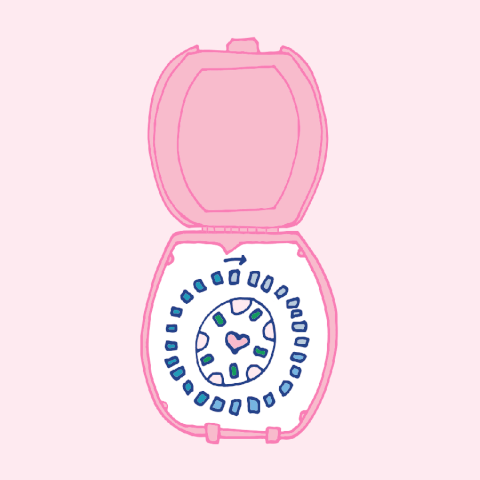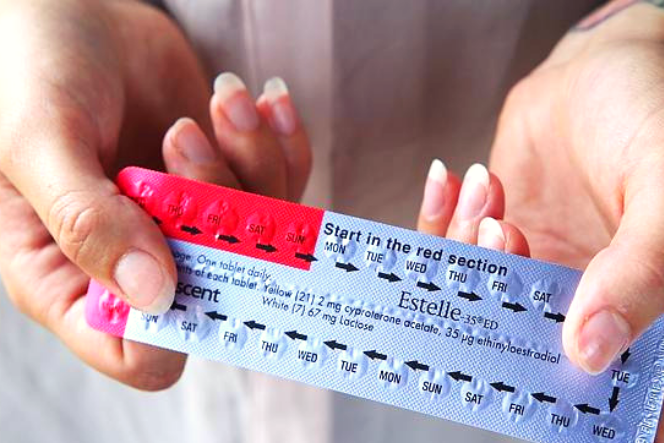Have we been taking the contraceptive pill the wrong way for the past 60 years? Well, ladies, we hate to tell you this but the way that we’ve been advised to take the pill has actually been heightening our risk of pregnancy rather than decreasing it.

The contraceptive pill has already been the height of so much drama in our daily lives. For example, having to take it at the same time every day is quite difficult for people like me who have erratic sleep patterns.
We’re plagued by a multitude of contraceptive choices, each with their own downfalls, but for many of us, the pill is what we’re prescribed at 15 because it’s one of the most convenient options.
Combined oral contraceptive pills, like Levlen or Microgynon, have 28 pills in the packet. They’re designed for you to take 21 days’ worth of hormonal pills and the remaining seven days are “sugar pills”, which contain no hormones. These seven days are intended as a break, and you’re meant to have a bleed.

This means that despite taking contraceptive pills, women still bleed every month (how unfair right?!), and in recent discussion, this supposed “period” has been called unnecessary.
An updated guide released by the Faculty of Sexual and Reproductive Healthcare (FSRH) revealed that the seven-day break has “no health benefit”, and we actually don’t need to bleed every month on the pill.
Okay. Hold on. We’ve been doing this wrong for 60 years? You’re telling us that we’ve been suffering unnecessarily every month?
Carl Djerassi, the “father of the pill”, spilled the beans in a lecture during 2015. Senior lecturer in sexual health at Anglia Ruskin University, Susan Walker, attended the lecture and noted the following:
“He remarked that the seven-day break, and resultant withdrawal bleed, was designed into the pill in the late 50s in an attempt to persuade the Vatican to accept the new form of contraception, as an extension of the natural menstrual cycle.”
The attempt for Pope Paul VI to approve contraception failed. However, the seven-day break remained and is what we all know to be normal pill-taking behaviour today.
According to James O’Loan, a consultant pharmacist at online doctor service Doctor4U, “It’s not entirely clear why [people] weren’t given this information, though the modern-day pill is very different to its 60-year-old grandmother.”
The seven-day break is actually a bit risky, as it can increase your chance of falling pregnant, despite being on the pill.
The reason you might be at a higher risk of pregnancy – even when taking the pill – is related to the levels of contraceptive hormones in your body. The hormones in the pills are intended to turn off ovulation; without ovulation, you can’t get pregnant.
It takes about seven daily doses of the pill to reach adequate hormone levels to stop ovulation. The big BUT here is that the seven-day break causes these levels to drop, and if the pill is not resumed by the ninth day then the whole point of the pill is diminished. Ovulation will occur, and that can lead to pregnancy.
So, the seven-day break sounds pretty hazardous and unnecessary, doesn’t it?

This is on top of the fact that we all forget to take the contraceptive pill at times – it seems to slip my brain every so often, even after taking it for 5 years!
Some doctors have agreed that this seven-day break isn’t necessary and they are actually in favour of extended or continuous pill regimes. You can take three or more packets of the contraceptive pill consecutively, and only after that have a pill-free week.
At this point, I’d like to take a moment to thank my own doctors for telling me not to take the seven-day break, because running my packets consecutively has been a lifesaver. Who wants to get a period every month if it’s unnecessary?
Ultimately, the choice of whether you want to take a seven-day break every month or to take the pill consecutively is up to you. It’s also a conversation to have with your doctor about what’s best for your body – like all contraception, the pill comes with a set of health risks and side effects. However, remember that the seven-day break was implemented for social reasons rather than medical grounds. In the end, it’s up to you to make informed decisions about your body, and remember to ask questions.
(Featured Image source)


